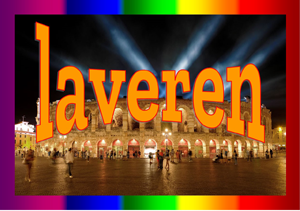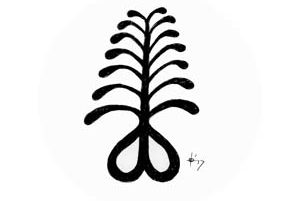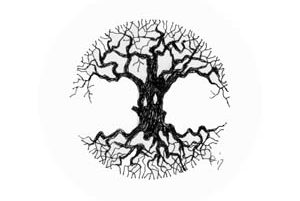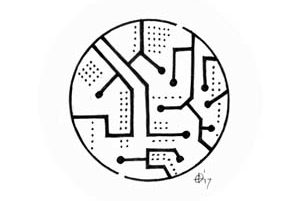Negotiating the Environment
Angela Roothaan
July 6, 2019, Source: writing-and-reading
Just recently my first single-authored book in English came out — I wrote it after becoming so frustrated at conferences that I could not share my books with the increasing numbers of non-Dutch colleagues whom I befriended.
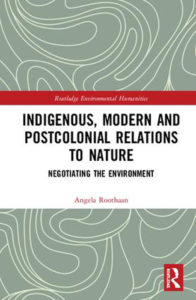 I had written 5 books, but all of them in my native language alone… Of course, there were articles — but they are always limited in scope, and cannot transfer so well one’s philosophical intentions in a wholistic manner. There are the blog-posts as well, and I know they are well-read, but they do not contain the argumentative structure and reference-basis that make the academic work a joy.
I had written 5 books, but all of them in my native language alone… Of course, there were articles — but they are always limited in scope, and cannot transfer so well one’s philosophical intentions in a wholistic manner. There are the blog-posts as well, and I know they are well-read, but they do not contain the argumentative structure and reference-basis that make the academic work a joy.
This was a lucky book. I was asked for it by the editor of the Environmental Humanities Series. The reviewers of the proposal understood what interdisciplinary debates I aimed to interfere in, and liked my writing style.
The people at Routledge, as well as their external copy-editor, were all so nice and helpful. I do not write this to boast, but to express my gratitude — that hard work and pushing on despite many odds payed off.
I hope the book will raise more awareness that academic philosophy needs to include indigenous people’s voices, to decolonize its attitude, to become inclusive — to undo, moreover, its discriminatory politics of epistemology, which excludes the voices of ani(mal)istic spirits — to our loss.
When a project like that — which took years of research and many months of writing — has been finished, my first reaction is always: oh, now I can read new things again!
Because, during the writing you should not, to not confuse the framework you built in dialogue with a collection of focused readings (the reference list at the end of the book).
A friend noted, seeing my new collection of readings, that I always focus on violent things. Well, no, that is not true. One has to focus on what limits freedom and happiness, however, if one aims to think towards finding the key to make them accessible more. One of those social media games asked to show a favourite book each day for five days. I didn’t have time and posted five books which were important to me in the past, and five which I am reading now.
You see. It is not much academic philosophy. I read that too, of course, more than the picture shows. Disciplinary philosophy should however always enter into dialogue with what happens in our world today. And in today there is much history.
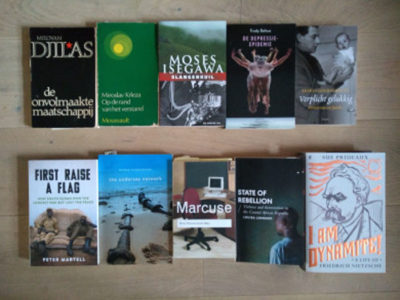 History which asks for eternal re-interpretation, as it still works out in the present.
History which asks for eternal re-interpretation, as it still works out in the present.
Much violence of today is still the effect of the so-called ended Cold War, or even of the colonial politics of European powers in the 19th century. If we do not try to understand those forces better, they will keep a hold on our policies — limiting our options to act as human beings with a choice.
My book on our Relations to Nature[1] is also not a romantic turn to pre-modern ways of life.
It is a study into the philosophical foundations of the most silent war of our times — the war of modernity against nature, and of the moderns (as Latour called this destructive tribe) to the indigenous peoples that understood differently how humans should live in and with nature.
Almost every day an ‘earth-defender’ is being murdered[2] somewhere on the globe. And a large portion of them, reports say, are members of indigenous peoples. You do not read this in the news. But it is most relevant to understand the problems of our times…
Notes
[1] https://www.routledge.com/Indigenous-Modern-and-Postcolonial-Relations-to-Nature-Negotiating-the/Roothaan/p/book/9781138337770
[2] https://www.france24.com/en/20150423-environmental-activists-killed-global-witness-survival-guarani


